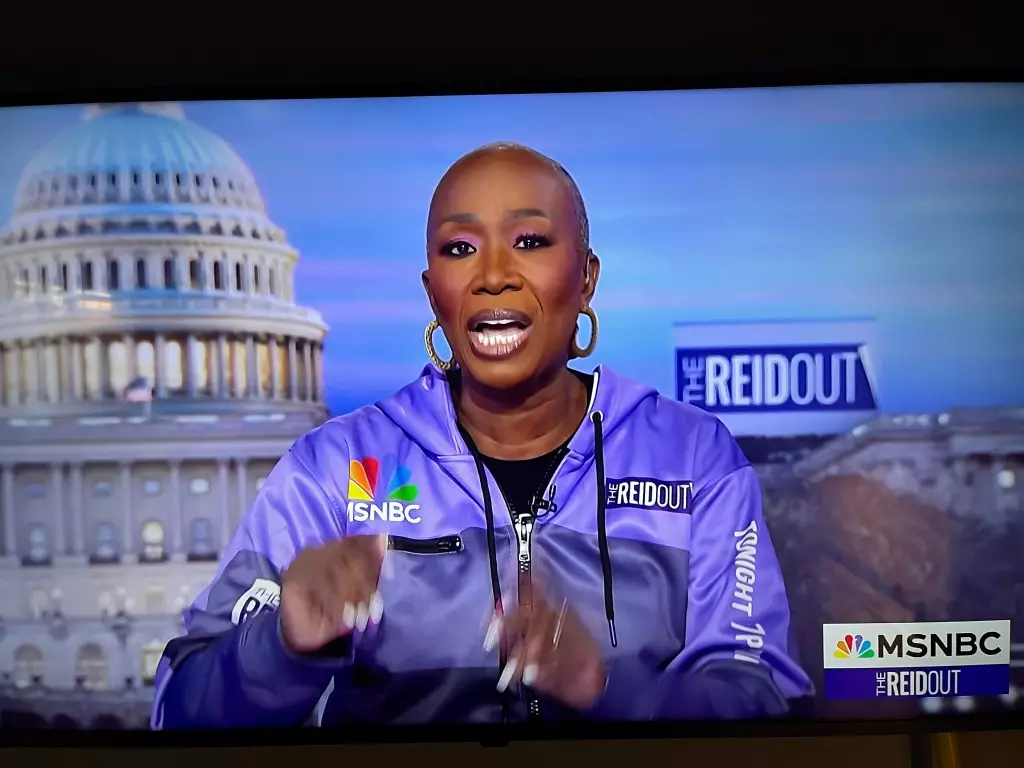Amidst ongoing national and political turmoil, Joy Reid’s departure from the prominent MSNBC show, The ReidOut, raises critical questions not only about her individual impact but also about the broader implications for democracy in the United States. As she aired her final episode, Reid provided both a retrospective of her journey and a compelling discussion about the importance of resistance in the face of what many perceive as an eroding democratic landscape.
The Crisis of Democracy: An Unfolding Reality
In her closing address, Reid posed a provocative inquiry: “When you are in the midst of a crisis, and specifically a crisis of democracy, how do you resist?” As America faces widespread concerns about the integrity of its institutions and the potential for authoritarian governance, such questions are increasingly relevant. Reid’s framing of the current political situation—suggesting that fascism is no longer an ominous potentiality but a present danger—presents a sobering view of the state of democracy today.
This recognition requires citizens to adopt a mindset of active resistance and engagement. It calls upon individuals to explore how they can mobilize collectively and support one another in pushing back against attempts to consolidate power. This notion of resistance is not merely a rallying cry but a call to action that resonates deeply within Reid’s audience and motivates collaborative efforts.
A Community of Allies: A Testament to Shared Struggles
During her final episode, Reid was joined by other MSNBC luminaries, including Rachel Maddow and Nicolle Wallace, who reflected on the importance of finding trusted allies in the fight for justice. “Find people who you respect and trust and love,” Maddow advised, emphasizing the necessity of companionship and alliance in overcoming challenges. In an era where division threatens to undermine solidarity, such assertions carry profound significance.
Reid’s influences include a diverse range of progressive voices, and her call for collaboration highlights the importance of having a community that stands together for a common purpose—promoting justice and pushing back against injustices. This message resounds beyond Reid herself, serving as a call for individuals to connect and creatively address shared challenges within their communities.
The Impact of Political Attacks on Individual Voices
Following the announcement of The ReidOut’s cancellation, Trump unleashed a series of criticisms directed at Reid, labeling her a “mentally obnoxious racist.” Such vitriol, however, can be interpreted as a testament to Reid’s effectiveness as a commentator and advocate. Rather than silencing her, these attacks illustrate her ability to challenge prevailing narratives, shaking the foundations of those in power.
Reid’s ability to provoke such strong reactions underscores her role as a significant voice in the progressive media landscape. Her unapologetic approach to discussing complex issues—including racial justice and humanitarian crises—exemplifies how media figures can wield their platforms to elevate critical discussions that resonate with the public’s conscience.
Despite the emotional turmoil Reid experienced upon learning of her show’s cancellation—feeling anger, sadness, and a sense of personal failure—she ultimately expressed immense gratitude. Reid’s acknowledgment of her work’s value, both in presenting challenging perspectives on pressing issues like the Constitution and international conflicts, encapsulates the essence of her mission: to speak truth to power.
As viewers reflect on Reid’s tenure, one thing is clear: her voice remained resolute in its commitment to justice, equality, and the protection of human dignity. Thus, the legacy of Joy Reid encourages ongoing dedication to democratic principles, not simply as passive observers but as active resisters who engage with their communities for the greater good.
With Reid’s departure, MSNBC’s programming will shift to new hosts, including Alicia Menendez and Michael Steele, aiming to maintain and expand upon the network’s progressive focus. Such transitions prompt conversations about the evolving landscape of political discourse and advocacy in media. As new voices rise, the questions Reid posed about resistance and democracy remain as urgent as ever.
Ultimately, Reid has inspired a culture of conscious engagement, urging individuals to reflect on their roles in preserving democracy. The fight for a just society requires ongoing vigilance and collective action. Even as Reid moves on, her impact endures—reminding us all to stand up for justice and democracy in tumultuous times.

